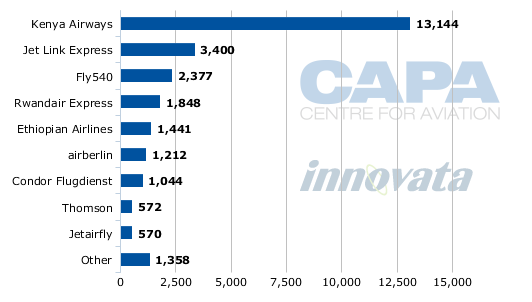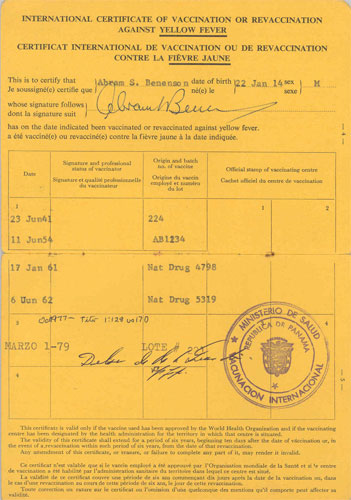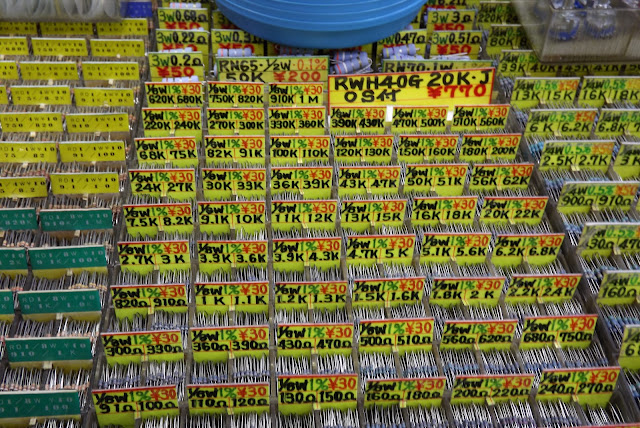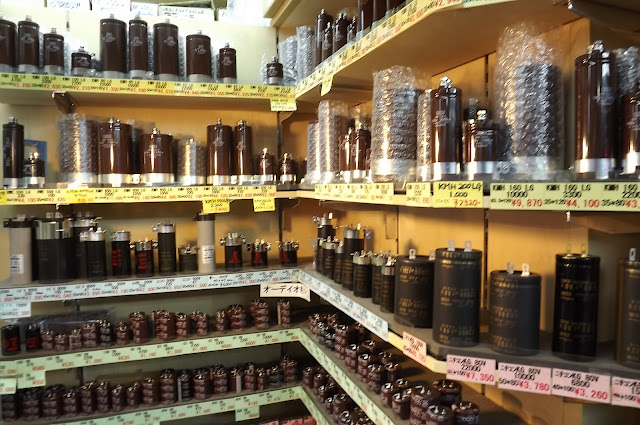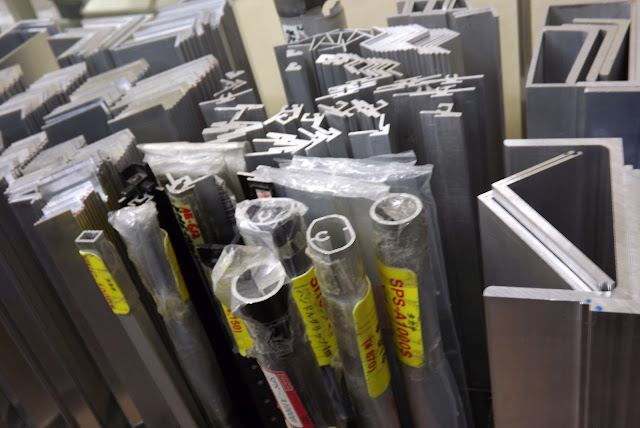Nassima Boukhriss has never set foot on an airplane, but soon she will be helping wire up some of the world's most advanced jetliners.
The 22-year-old vocational student is participating in one of North Africa's most ambitious economic-development efforts: starting an aerospace industry.
Across Morocco, millions of people lack jobs, basic education and even running water. Manufacturing remains a small part of the economy compared with agriculture and tourism. Low-skilled textile work is one of the biggest sectors.
At a school near Casablanca, students are learning skills that they hope will win them high-paying jobs in Morocco's growing aerospace industry. Video and reporting by WSJ's Daniel Michaels.
Yet over the past decade, Boeing Co., Safran SA of France and other leading aviation companies have built increasingly sophisticated factories in this kingdom.
As revolutions swept neighboring countries last year, aerospace giants United Technologies Corp. and Bombardier Inc. BBD.B.T unveiled investments of more than $200 million in new Moroccan factories.
To ensure they have qualified staff, the government and an industry group in May opened the Moroccan Aerospace Institute, or IMA, the vocational school Ms. Boukhriss attends.
The result is that the aviation industry now employs almost 10,000 Moroccans who earn about 15% above the country's average monthly wage of roughly $320.
Moroccan officials are betting that by leapfrogging into advanced manufacturing like aerospace and electronics, the country can attract more basic industries in their wake.
Morocco's Aerospace Gambit
Over the past decade, leading aviation companies have built increasingly sophisticated factories in Morocco, as local officials hope this push into advanced manufacturing can attract more basic industries in its wake.
"When you succeed in aerospace, you can succeed in other industries," said Hamid Benbrahim El-Andaloussi, president of Morocco's aerospace trade group, Gimas.
That hasn't happened yet. Manufacturing's share of Morocco's economy has shrunk over the past decade. The country has joblessness of roughly 30% among both young and well-educated people—the same groups that helped lead revolts in Egypt and Tunisia.
The upheaval of the Arab Spring has put new urgency on showing Morocco's aerospace gambit can deliver. King Mohammed VI last March neutralized protests by offering a more democratic constitution and fresh elections, which proceeded peacefully in November. But for Morocco to remain calm, analysts say, it must create jobs.
"High unemployment is at the center of what's going on in the region," says Karim Belayachi, a private-sector development specialist at the World Bank.
Morocco's push into commercial aeronautics is unusual among developing economies. Brazil, Indonesia and South Africa in the last century developed military aerospace companies, but only Brazil's privatized Empresa Brasileira de Aeronáutica SA successfully shifted to building passenger planes. Today, it is a national bellwether. Mexico has recently drawn aerospace component producers, but they remain a small part of its economy.
Many more countries have expanded with technology and automotive investments, as Morocco is also attempting. Taiwan, South Korea and Slovakia relied on foreign or state-supported investments, mixed with entrepreneurialism, for economic growth. But those countries fostered regulatory climates more friendly to start-ups than Morocco has achieved and could tap skilled work forces. Education in Morocco lags behind its economic peers, according to the World Bank.
Morocco's aerospace development started in 1999 with a nudge from Mr. Benbrahim at Gimas, who was then a senior executive at Boeing's longtime customer Royal Air Maroc. He and other officials at the national carrier urged the U.S. giant to invest in Morocco as a sign of good faith.
"There was push-back within Boeing," among executives who deemed an investment unnecessary, recalls Seddik Belyamani, who was then Boeing's top airplane salesman and was born in Morocco.
But the Moroccan links and a desire to fend off rival Airbus prevailed. Boeing, the airline and French electrical-wiring company Labinal SA in 2001 opened a small operation preparing cables for Boeing 737 jetliners, named Matis. Staff painstakingly prepared wire bundles and shipped them to Boeing plants in the U.S. for installation.
The labor-intensive work entailed no technical background, yet Boeing managers still initially expected to achieve efficiency of only 30% of industry norms. To their surprise, staff hit 70% efficiency within two years, recalls Mr. Belyamani, who retired from Boeing in 2002 and recently was appointed chairman of Matis.
The results impressed executives at Labinal, which in 2000 had been acquired by the French aerospace group now called Safran. Managers saw that as Matis grew, job openings attracted floods of highly educated applicants. More than 80% are women, who have limited job opportunities in traditional industries.
The only foreigner among 700 Matis staff today is the French general manager, Sébastien Jaulerry, who previously worked for Labinal in the U.S. and France. Walking through the spotless plant recently, he said employees achieve "exactly the same standard" of quality as at his previous plants.
Around him, Matis staff prepared wires not just for Boeing but also for General Electric Co. GE -0.69% engines, Dassault Aviation SA AM.FR -0.42% business jets and even Airbus jetliners. The most visible difference from more established aviation shops was the large number of women in head scarves.
Safran, encouraged by results at Matis, expanded into more advanced manufacturing. In 2006, its Aircelle division opened a plant making jet-engine housings. The work, which includes machining advanced plastic composites and assembling safety-critical structures, mirrors operations at Aircelle plants in France and Britain. Product quality is also comparable, say Aircelle executives.
Today, Moroccan officials highlight aerospace as a success within the country's larger economic modernization drive, dubbed "Emergence." Other projects include a giant Mediterranean port complex and tax-free zone at Tangiers, where French car giant Renault SA recently opened a big factory.
Yet despite Morocco's big push to create export-oriented jobs, manufacturing's share of the economy is shrinking, says Lahcen Achy, an economist with the Carnegie Endowment for International Peace, in Morocco's capital, Rabat. He calculates manufacturing now stands at roughly 15.6% of gross domestic product. The World Bank pegged it at 19% of GDP in 1995.
Moroccan manufacturing growth hasn't kept pace with tourism and other service businesses. A major reason, economists say, is the headaches that domestic entrepreneurs face. Mr. Belayachi at the World Bank notes that Morocco's judicial system reports to the royal palace and isn't an independent arm of government, which undermines its reliability. "Enforcing a contract is lengthy and difficult, which has a big impact" on small businesses, he said.
Moroccan officials say they have made other efforts to help business, including recent anticorruption legislation and the creation in 2009 of a Central Authority for Corruption Prevention.
Analysts say that as a result of impediments to business, local entrepreneurs haven't piggybacked foreign investors as extensively as domestic producers in developing countries of Asia and Eastern Europe.
Ahmed Chami, a member of parliament who served as Morocco's minister of industry until recently, said foreign investments are starting to bear fruit and "spillover will happen." The lack of local aerospace businesses is "the weakness in the picture today and should be the next focus," he conceded.
Boosters of Moroccan aerospace say the growing number of foreign suppliers indicates the sector will go local. One of the first contractors to arrive was Le Piston Français, an aerospace component producer based in Toulouse, France, near the Airbus unit of European Aeronautic Defence & Space Co. EAD Director Vincent Fontaine says the company was drawn to Casablanca in 1999 by sales opportunities and government incentives, such as tax breaks.
The plant has grown to 110 employees from about 25 and is adding new customers, such as Bombardier, Mr. Fontaine said. Aerospace materials, like advanced alloys, are also getting easier to buy locally, marking "a big step for industrial development," he said.
But other investors have faced a bumpier ride. Baccarat Precision, a French family-owned aerospace contractor, started making pistons for jetliner brakes near Casablanca in 2007. Soon after, it landed a giant order for explosive devices that blow open airplane doors in emergency evacuations. The complex cylinders, made of 40 precisely machined elements, must be assembled in a clean room to keep pressurized nitrogen from escaping.
When production began in 2008, managers rejected every second cylinder due to production flaws. "Machinists in Morocco have never seen pieces like this," said local manager Giancarlo Zanfonato, holding one of the hand-size metal devices. He eventually realized that compared with seasoned French workers, his Moroccan staff needed twice the documentation, including pictures detailing every production step.
After intense efforts to educate machinists, the rejection rate has shrunk below 10%, yet remains far above the target of 2%, Mr. Zanfonato said. The project, which was expected to break even within one year, remains unprofitable. "We are a small company and this project was much too ambitious for us," he said.
Mr. Zanfonato sees a hopeful sign in the creation of IMA, the vocational school, which will graduate several hundred students annually. The center is a partnership between the government, which contributed the land and buildings, and the industry group, Gimas. Its members organize and sponsor training, modeled on French standards, for their new hires. Students spend up to 10 months alternating two-week stints at IMA, where many live in dormitories, and on their new jobs.
Demand for graduates is so strong that companies are pressing for two shifts of classes, said IMA Director Annie Lagrandeur recently, as students practiced wiring and machining in the school's shop. Nearby, others attended lectures given by veteran aerospace workers whom IMA hired from local plants for their expertise.
Before IMA, foreign aerospace investors were paranoid about rivals poaching their few skilled employees, Ms. Lagrandeur recalled. Some companies even forbade their local staff from riding together on shuttle buses out of fear they might try to recruit each other.
IMA and similar industry-led vocational schools that Morocco has established in the automotive and other industries are "leading-edge in the region," says Anthony O'Sullivan, head of the Organization for Economic Cooperation and Development's private sector development division in Paris. Morocco's overall educational development lags many of its neighbors, and he says "one of the best ways to fill the gap is to have companies involved in training."
Within three months of IMA's opening in May, roughly 1,200 aspiring students had delivered resumes to the front gate, and more sent in applications, said Ms. Lagrandeur.
"It's a great opportunity because we learn very technical skills in electronics," said Ms. Boukhriss, the student. Classmate Said Ouchen added he is proud Morocco is developing an aerospace sector and has remained stable over the past year. "Morocco is an example," he said.
Source: Wall Street Journal
Email Us at FlightAfricablog@gmail.com
The 22-year-old vocational student is participating in one of North Africa's most ambitious economic-development efforts: starting an aerospace industry.
Across Morocco, millions of people lack jobs, basic education and even running water. Manufacturing remains a small part of the economy compared with agriculture and tourism. Low-skilled textile work is one of the biggest sectors.
At a school near Casablanca, students are learning skills that they hope will win them high-paying jobs in Morocco's growing aerospace industry. Video and reporting by WSJ's Daniel Michaels.
Yet over the past decade, Boeing Co., Safran SA of France and other leading aviation companies have built increasingly sophisticated factories in this kingdom.
As revolutions swept neighboring countries last year, aerospace giants United Technologies Corp. and Bombardier Inc. BBD.B.T unveiled investments of more than $200 million in new Moroccan factories.
To ensure they have qualified staff, the government and an industry group in May opened the Moroccan Aerospace Institute, or IMA, the vocational school Ms. Boukhriss attends.
The result is that the aviation industry now employs almost 10,000 Moroccans who earn about 15% above the country's average monthly wage of roughly $320.
Moroccan officials are betting that by leapfrogging into advanced manufacturing like aerospace and electronics, the country can attract more basic industries in their wake.
Morocco's Aerospace Gambit
Over the past decade, leading aviation companies have built increasingly sophisticated factories in Morocco, as local officials hope this push into advanced manufacturing can attract more basic industries in its wake.
"When you succeed in aerospace, you can succeed in other industries," said Hamid Benbrahim El-Andaloussi, president of Morocco's aerospace trade group, Gimas.
That hasn't happened yet. Manufacturing's share of Morocco's economy has shrunk over the past decade. The country has joblessness of roughly 30% among both young and well-educated people—the same groups that helped lead revolts in Egypt and Tunisia.
The upheaval of the Arab Spring has put new urgency on showing Morocco's aerospace gambit can deliver. King Mohammed VI last March neutralized protests by offering a more democratic constitution and fresh elections, which proceeded peacefully in November. But for Morocco to remain calm, analysts say, it must create jobs.
"High unemployment is at the center of what's going on in the region," says Karim Belayachi, a private-sector development specialist at the World Bank.
Morocco's push into commercial aeronautics is unusual among developing economies. Brazil, Indonesia and South Africa in the last century developed military aerospace companies, but only Brazil's privatized Empresa Brasileira de Aeronáutica SA successfully shifted to building passenger planes. Today, it is a national bellwether. Mexico has recently drawn aerospace component producers, but they remain a small part of its economy.
Many more countries have expanded with technology and automotive investments, as Morocco is also attempting. Taiwan, South Korea and Slovakia relied on foreign or state-supported investments, mixed with entrepreneurialism, for economic growth. But those countries fostered regulatory climates more friendly to start-ups than Morocco has achieved and could tap skilled work forces. Education in Morocco lags behind its economic peers, according to the World Bank.
Morocco's aerospace development started in 1999 with a nudge from Mr. Benbrahim at Gimas, who was then a senior executive at Boeing's longtime customer Royal Air Maroc. He and other officials at the national carrier urged the U.S. giant to invest in Morocco as a sign of good faith.
"There was push-back within Boeing," among executives who deemed an investment unnecessary, recalls Seddik Belyamani, who was then Boeing's top airplane salesman and was born in Morocco.
But the Moroccan links and a desire to fend off rival Airbus prevailed. Boeing, the airline and French electrical-wiring company Labinal SA in 2001 opened a small operation preparing cables for Boeing 737 jetliners, named Matis. Staff painstakingly prepared wire bundles and shipped them to Boeing plants in the U.S. for installation.
The labor-intensive work entailed no technical background, yet Boeing managers still initially expected to achieve efficiency of only 30% of industry norms. To their surprise, staff hit 70% efficiency within two years, recalls Mr. Belyamani, who retired from Boeing in 2002 and recently was appointed chairman of Matis.
The results impressed executives at Labinal, which in 2000 had been acquired by the French aerospace group now called Safran. Managers saw that as Matis grew, job openings attracted floods of highly educated applicants. More than 80% are women, who have limited job opportunities in traditional industries.
The only foreigner among 700 Matis staff today is the French general manager, Sébastien Jaulerry, who previously worked for Labinal in the U.S. and France. Walking through the spotless plant recently, he said employees achieve "exactly the same standard" of quality as at his previous plants.
Around him, Matis staff prepared wires not just for Boeing but also for General Electric Co. GE -0.69% engines, Dassault Aviation SA AM.FR -0.42% business jets and even Airbus jetliners. The most visible difference from more established aviation shops was the large number of women in head scarves.
Safran, encouraged by results at Matis, expanded into more advanced manufacturing. In 2006, its Aircelle division opened a plant making jet-engine housings. The work, which includes machining advanced plastic composites and assembling safety-critical structures, mirrors operations at Aircelle plants in France and Britain. Product quality is also comparable, say Aircelle executives.
Today, Moroccan officials highlight aerospace as a success within the country's larger economic modernization drive, dubbed "Emergence." Other projects include a giant Mediterranean port complex and tax-free zone at Tangiers, where French car giant Renault SA recently opened a big factory.
Yet despite Morocco's big push to create export-oriented jobs, manufacturing's share of the economy is shrinking, says Lahcen Achy, an economist with the Carnegie Endowment for International Peace, in Morocco's capital, Rabat. He calculates manufacturing now stands at roughly 15.6% of gross domestic product. The World Bank pegged it at 19% of GDP in 1995.
Moroccan manufacturing growth hasn't kept pace with tourism and other service businesses. A major reason, economists say, is the headaches that domestic entrepreneurs face. Mr. Belayachi at the World Bank notes that Morocco's judicial system reports to the royal palace and isn't an independent arm of government, which undermines its reliability. "Enforcing a contract is lengthy and difficult, which has a big impact" on small businesses, he said.
Moroccan officials say they have made other efforts to help business, including recent anticorruption legislation and the creation in 2009 of a Central Authority for Corruption Prevention.
Analysts say that as a result of impediments to business, local entrepreneurs haven't piggybacked foreign investors as extensively as domestic producers in developing countries of Asia and Eastern Europe.
Ahmed Chami, a member of parliament who served as Morocco's minister of industry until recently, said foreign investments are starting to bear fruit and "spillover will happen." The lack of local aerospace businesses is "the weakness in the picture today and should be the next focus," he conceded.
Boosters of Moroccan aerospace say the growing number of foreign suppliers indicates the sector will go local. One of the first contractors to arrive was Le Piston Français, an aerospace component producer based in Toulouse, France, near the Airbus unit of European Aeronautic Defence & Space Co. EAD Director Vincent Fontaine says the company was drawn to Casablanca in 1999 by sales opportunities and government incentives, such as tax breaks.
The plant has grown to 110 employees from about 25 and is adding new customers, such as Bombardier, Mr. Fontaine said. Aerospace materials, like advanced alloys, are also getting easier to buy locally, marking "a big step for industrial development," he said.
But other investors have faced a bumpier ride. Baccarat Precision, a French family-owned aerospace contractor, started making pistons for jetliner brakes near Casablanca in 2007. Soon after, it landed a giant order for explosive devices that blow open airplane doors in emergency evacuations. The complex cylinders, made of 40 precisely machined elements, must be assembled in a clean room to keep pressurized nitrogen from escaping.
When production began in 2008, managers rejected every second cylinder due to production flaws. "Machinists in Morocco have never seen pieces like this," said local manager Giancarlo Zanfonato, holding one of the hand-size metal devices. He eventually realized that compared with seasoned French workers, his Moroccan staff needed twice the documentation, including pictures detailing every production step.
After intense efforts to educate machinists, the rejection rate has shrunk below 10%, yet remains far above the target of 2%, Mr. Zanfonato said. The project, which was expected to break even within one year, remains unprofitable. "We are a small company and this project was much too ambitious for us," he said.
Mr. Zanfonato sees a hopeful sign in the creation of IMA, the vocational school, which will graduate several hundred students annually. The center is a partnership between the government, which contributed the land and buildings, and the industry group, Gimas. Its members organize and sponsor training, modeled on French standards, for their new hires. Students spend up to 10 months alternating two-week stints at IMA, where many live in dormitories, and on their new jobs.
Demand for graduates is so strong that companies are pressing for two shifts of classes, said IMA Director Annie Lagrandeur recently, as students practiced wiring and machining in the school's shop. Nearby, others attended lectures given by veteran aerospace workers whom IMA hired from local plants for their expertise.
Before IMA, foreign aerospace investors were paranoid about rivals poaching their few skilled employees, Ms. Lagrandeur recalled. Some companies even forbade their local staff from riding together on shuttle buses out of fear they might try to recruit each other.
IMA and similar industry-led vocational schools that Morocco has established in the automotive and other industries are "leading-edge in the region," says Anthony O'Sullivan, head of the Organization for Economic Cooperation and Development's private sector development division in Paris. Morocco's overall educational development lags many of its neighbors, and he says "one of the best ways to fill the gap is to have companies involved in training."
Within three months of IMA's opening in May, roughly 1,200 aspiring students had delivered resumes to the front gate, and more sent in applications, said Ms. Lagrandeur.
"It's a great opportunity because we learn very technical skills in electronics," said Ms. Boukhriss, the student. Classmate Said Ouchen added he is proud Morocco is developing an aerospace sector and has remained stable over the past year. "Morocco is an example," he said.
Source: Wall Street Journal
Email Us at FlightAfricablog@gmail.com
